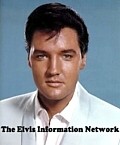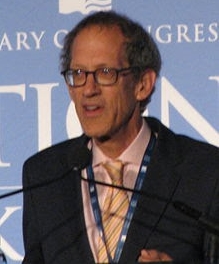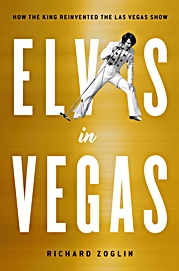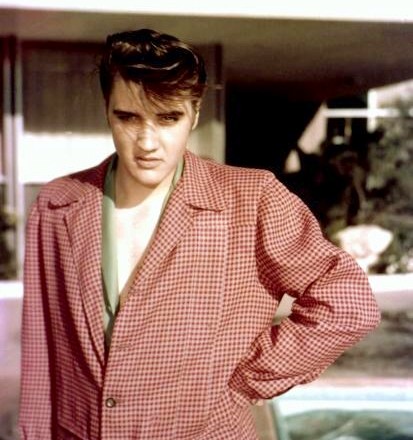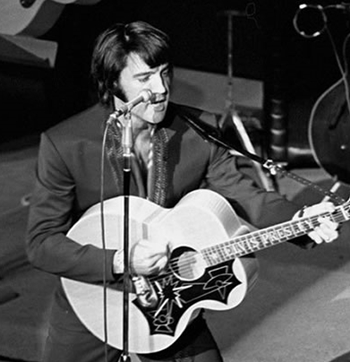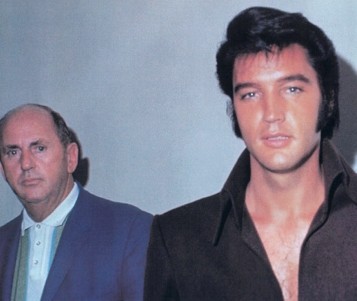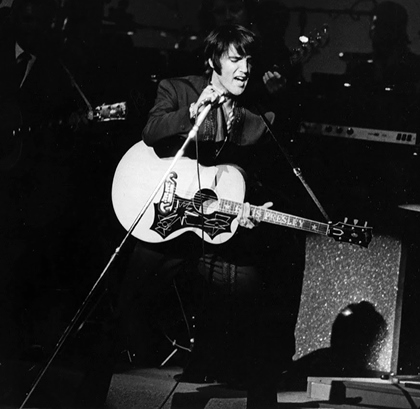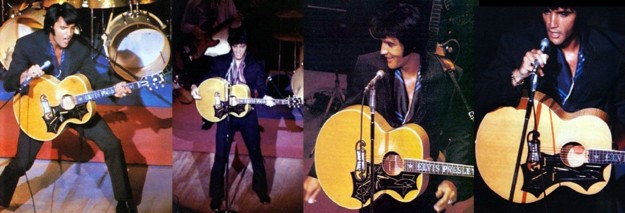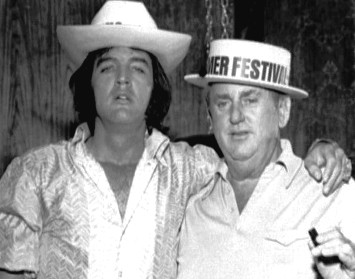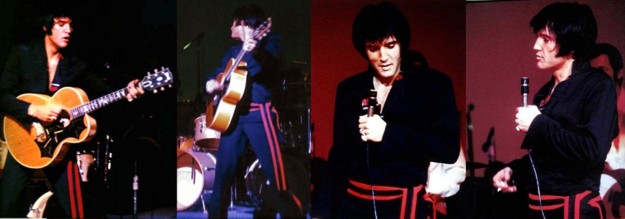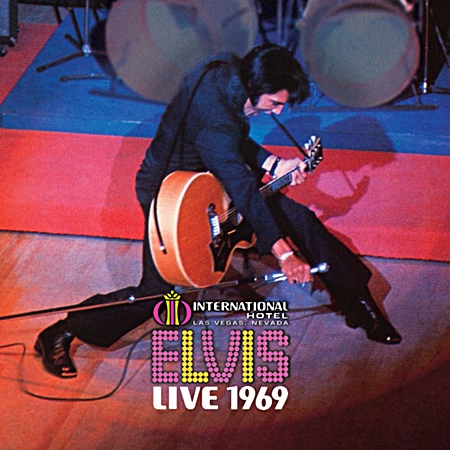 |
 |

The InterviewRZ: It actually started because I thought somebody should do a history of Las Vegas and the golden age of entertainment. My idea was to write a book from the early 60s starting with the Rat Pack up to Elvis’ Vegas comeback in 1969. That was sort of the culmination of that great era of entertainment in Vegas. As I looked into Elvis more and more I saw that he had played Vegas in 1956 - something I didn’t know. After his 1956 shows, Elvis formed a strong connection with Vegas. He just loved it, all the way through the 60s, even though he wasn’t playing Vegas then. So I decided to make the book a sort of dual narrative of Vegas golden age culminating in Elvis’ ‘69 comeback and of Elvis himself and his connection with Vegas over those years.
EIN: Richard, in Elvis In Vegas, I was impressed by your ability to frame Elvis’ comeback in the socio-political context of the time. RZ: There were so many interesting narrative threads. I realised that no one had ever put Elvis’ comeback in the context of Las Vegas and how it impacted not only Elvis, but Vegas as well. And to do that I needed to tell the story of Las Vegas entertainment, its history, how it was before....the Rat Pack shows which were part of the old nightclub style era. And by the late 60s with the rock revolution and the Beatles, how that affected Vegas. Vegas was starting to feel very “old school” and the hotel owners needed something to broaden their audience and attract the younger generation. Elvis, the original rock and roller came along and so in my book I draw together all these different narrative strands. EIN: You have written two critically acclaimed books: Comedy at the Edge: How Stand-Up in the 1970’s Changed America and Hope: Entertainer of the Century. How similar was it writing Elvis in Vegas? Was your process the same? RZ: Yes it was generally the same. I enjoy picking pop culture subjects that haven’t been covered that much. My first book was on stand-up comedians of the 1970s, which was an era people knew about, they knew comedians like George Carlin, Lenny Bruce, Steve Martin, and so on, but no-one had brought it together as a distinctive period and talked about how one influenced the other and so forth. I thought that would be an original idea to write about. Regarding my second book, Bob Hope was a very important entertainer in the 20th century who hadn’t been given a really good biography about him and his career and I thought that was a big need. For both books I interviewed as many people who were still around who had known those people. A lot of their contemporaries were gone. I did my other research by reading everything that was out there. In writing Elvis In Vegas it was the same, long process, doing as many first-hand interviews as possible, reading all that was out there, and then writing about his role in defining a certain era in Vegas history. I talked to people who were in his band, people who were his intimates during that period of his career, and other show business people who knew him, appeared with him or were part of the Vegas scene at the time. It was a bit harder for me as I was a a little outside my comfort zone in the sense that I’m not a music critic, so talking about Elvis’ music was more of a challenge for me. Although I’m a fan, I’m not a music person. I’m not a musical expert per se but I am a fan of Elvis and someone who is interested in the creative processes. I always thought with Elvis, who was having creative problems by the late 60s and was able to resurrect his career, that it was a story that appeals. I am fascinated by how a person manages their career challenges and their creative processes to find a way back. I felt a lot more comfortable writing about comedians as that’s a subject I’m much more familiar with. However, I think what I was doing was essentially the same thing......you are describing a person’s creative process and career. I think I am a good listener and I feel I was able to do the job. I think that how I’ve brought together that part of Elvis’ career has not been done before.
EIN: How long did the process take with Elvis In Vegas? RZ: It took about 2 and a half years. I thought that was a pretty good pace. Bob Hope took longer. It was a longer book and a longer career.....he lived to be 100. And Elvis in Vegas was a more defined period. EIN: And Bob Hope’s career was broader than Elvis’ – he started out in Vaudeville. RZ: Yes. And doing a full biography takes more work and deeper research, while Elvis in Vegas, his relationship with Vegas, was more defined. EIN: Richard, in Elvis in Vegas, you discuss how Elvis shook up Vegas with his non-conventional template for what a Vegas show was. In contemplating this I found it interesting to also consider the powerful quote by rock critic, Richard Goldstein, that you include in the book:
It appears Elvis, while intrinsically innovative, was almost always “out of step” with the establishment, be it the conservatism of “mom and dad" America in the 50s and then the progressive, counterculture rock media of the late 60s. Do you have a view on this? I would say there was a certain narrow mindedness in the "quote, unquote" progressive rock critics. To them there was a certain style that was happening and that was what they were into and they couldn’t expand their horizons enough to take in the people who weren’t doing what they were into. Elvis wasn’t really at the cutting edge of what was going on and he had gotten pretty complacent. His music wasn’t making the charts, it wasn’t making a splash like it used to. And so the rock critics who were into the Beatles and the Stones and everybody else, had no use for Elvis. They didn’t realise that Elvis still was as a singer, as a musical artist, a great performer. He didn’t have good material throughout the 60s and once that changed they realised he was still a great singer. They were surprised and incredibly impressed by what Elvis did when he came back, with the ‘68 Special and Vegas in ‘69. RZ: That's a good question. I think Elvis was always a really instinctual performer. I think that had he had a musical director or producer it might have been more a show like Colonel Parker envisaged, a more traditional Vegas show with chorus girls. But Elvis had his vision, essentially of a rock concert on the Vegas stage, but blown up to big Vegas proportions. He wanted that stage to be filled with more musicians than any Vegas show ever. He wanted two back up groups, a rhythm band and a full orchestra. I was surprised. I kept asking people, “Who picked the songs?", "who decided how the set would go or that he would start with these songs then move to this?". To me, it seemed that there would be some kind of musical guru or veteran of those kind of shows who would help you out. But Elvis doesn’t even seem to have had that. He basically just depended on his friends, Charlie Hodge, and so forth to determine what songs he wanted to do and in what order. As I say, I was surprised. I thought that doing a Vegas show under such high stakes and the circumstances of it being his big comeback, it was just such a big gamble for him. Everybody’s eyes were just on him and it was such a make or break thing, I thought he would go out seeking a little more advice, but it doesn’t seem like he did. Colonel Parker never had much to do with his creative process, Elvis just had that close circle of friends and the band. And they just went through songs and Elvis made the final decisions. If he’d had a musical director I think the show could have been slicker and probably wouldn’t have been as good. I think Elvis knew instinctively he needed to just get back to the basics of his singing and to show off the range of material that he was capable of doing at that moment – the early rock songs, the new, big ballads, the sentimental songs and so on. He just knew. He was always an instinctual performer and he kept to that, and I think that was all to the good.
RG: Yes it was. It surprised me. That was the only press conference he ever gave in Las Vegas. It came after the show which everybody agreed was a raging success. I think everybody in the press knew what it meant to Elvis and that he really pulled off a great feat. And, just spontaneously, I guess they just felt he deserved another ovation. So when he walked into the room they gave him another standing ovation. It is a little odd. It was a kind of unique situation.
RZ: I think that they were narrower kind of artists. Tom Jones had a short period of time when he was very big and he was a very dynamic stage performer. Elvis learned some of his moves from watching him. But I don’t think Tom Jones was as great a singer as Elvis or had as broad an audience as Elvis. His time in Vegas as a big star was fairly limited. Wayne Newton, who still performs in Vegas today doing a lounge type show where he goes through his career and shows clips and that sort of thing, was a pure Vegas performer. I mean he had a perfect Vegas show in that it was kind of corny and very schmaltzy, over the top. I don’t think he was insincere but he was very “show businessy”. I don’t think his audience was particularly sophisticated and obviously, musically, he wasn’t as powerful as Elvis. But certainly he had an audience and incredible longevity in Vegas. But as I said, I don’t think Wayne Newton was musically anywhere near what Elvis had. Elvis combined a real showmanship for Vegas with real musical power and credibility and range, and more. Plus the fact that he was the first rock and roller and had grown and matured as a performer, and put it all out there on stage for everybody to see. It was a much richer experience for Vegas audiences than they got from someone such as Wayne Newton.
RZ: Yes it is. When Elvis came along Vegas needed a shot in the arm of some kind. The old stars, the Sinatra’s, Dean Martin’s and Sammy Davis’s, were getting older, the night club scene was starting to look pretty worn and old, and at the same time the rest of the world was changing. And Vegas never knew what to do with rock and roll. They dabbled in it but essentially at the time Vegas was still a night club kind of town. Elvis came along at the perfect time and was able to bring rock and roll into Vegas and onto the big stage. Up until Elvis’ comeback, rock and roll and R&B were confined more to the lounges and only a little on the main stages. But Elvis really brought rock and roll onto the big Vegas stage and helped Vegas move into that new rock and roll world. Obviously, in 1956, Elvis had totally the wrong timing. The Vegas audience didn’t know what to make of him. I don’t know if Elvis 1964 could have worked in Las Vegas. I think the Rat Pack and its era was still pretty much riding high and maybe Elvis wouldn’t have worked. EIN: What is Howard Hughes’ legacy regarding Las Vegas? RZ: Well Hughes was the guy who came in and basically bought out a lot of the old mob owned hotels. He started the trend away from the mob controlled hotels to the new corporate run hotels. It is quite complicated, as at the time Hughes came in it was quite difficult for corporations to get a casino licence. Permission for hotel owners to have a casino licence came from the State Gaming Commission. With a corporation that had stockholders that would have meant each stockholder had to get approval and that was practically impossible. Because of who Hughes was the Gaming Commission relaxed their rules and made it much easier for corporations to obtain gaming licences. Hughes also started the transition from the era when the casinos were the big money makers that supported the showrooms. The hotels could pay huge money to the stars and charge very little for the shows because they would make it all up in the casinos. All they wanted to do was get people into the showrooms so they would stay and play the casinos and gamble. With Hughes, his idea was that the showroom had to pay for itself, the restaurant had to pay for itself - that led to a lot more financial discipline and they were not spending as wildly. It changed the whole mentality of Las Vegas to a much more financially disciplined operation. Hughes was an enigma his whole life. He was an enigma in Vegas. If he had had his own way he would have bought up practically the whole town. He was a transitional figure, he didn’t stay in Vegas for that long. But he helped move Vegas from the traditional era of mob owners to the new corporate owners, the Kirk Kerkorian's and Hilton's, and the new hotels, Caesar's Palace, the Holiday Inn, and so on. EIN: Was there anything you discovered about Elvis when researching and Elvis In Vegas that surprised you? RZ: You know, what I tell people that surprised me, is that I ended up liking Elvis. Not that I didn’t like him before, but I became more impressed with him as a person. I interviewed dozens of people who knew Elvis, his entourage, his band, or were present when he played Vegas, and I can honestly say that not a single person had a bad word to say about him. Everyone liked Elvis. Whatever craziness was in his world, including his entourage that some people thought kept him too insulated, Elvis himself was just always a really likeable person, generous, interested in people, a good listener, a reader. He was just a very affable person. I think that despite all the excess and bombast of some of his later shows, Elvis was surprisingly down to earth, still the kid from Tupelo who had stayed grounded with some of those good southern values. His politeness, his good manners, the generosity, the interest in people....I think those were things that he grew up with and that he retained through all the craziness of the later years. I found that all very admirable and it was a bit surprising to me.
RZ: What will Elvis be remembered for? I think Elvis was one of the great, maybe the great innovator in music in the twentieth century. I mean it wasn’t the period that I particularly wrote about in the book, but in the 1950s it was Elvis who changed popular music, he changed the culture. While I wanted to record his impact during his Vegas years I first realised what a revolution he caused in the entire culture in the mid-fifties and that to me is his great legacy. Elvis was the one didn’t necessarily invent rock and roll but he was the one that made it for a mass audience, he’s the one who introduced rhythm and blues to a white audience, he’s the one who created the split in the culture between the old hit parade, Tin Pan Alley standards and the new rock and roll music that kids were listening to. And that was the first time that the music audience split between what the older generation was listening to and what the kids were listening to. Of course, later that split just widened, but Elvis was the one....when he went on the Ed Sullivan Show it was a shock to the older generation.....who introduced that whole divide in the culture. That’s what I think his main legacy is. Secondarily though, what I talk about in my book is that his Vegas shows show that here was a guy who could reinvent himself in a way that was totally different to what he did in the fifties, to go in a new direction, to defy the critics and maybe even some of the fans who loved him in the fifties, to figure out how to resurrect his career and move forward in a new direction with such incredible success, and show himself to be such a dynamic performer in a new mode. That to me is a really inspiring story for a creative artist and I would like Elvis to be remembered for that as well. EIN: What can you say about your next book? RZ: I am thinking about it but I don’t want to say much about it at this time. What I can say is that it’s hard....you know so far with each of my books I’ve written about a certain period in time or covered a subject in a way that hasn’t been done before. It’s hard to find those subjects and I am trying to find another one, but it’s not easy. EIN: Richard, is there anything else you would like to say to EIN readers? RZ: You know, I enjoy reading your site and I know there are a lot of knowledgeable fans out there, but I feel a little bit intimidated as I was not a huge Elvis fan before I started the book. I became a major Elvis fan as I wrote the book. I got to appreciate all his music and his Vegas shows, you know I got to watch all the video I could, I’ve listened to all the audio recordings, and I just gained a real appreciation for what a dynamic performer and singer he was. So in my book I wanted to argue against that (almost) cliche that Elvis was overweight and drug affected. Whatever happened in the later years, I wanted to remind people of how terrific and powerful a performer Elvis was when he first came back to Vegas in 1969-70-71. EIN: Richard, it has been a great pleasure talking with you today. Thank you for your time and insights into Elvis in Vegas. EIN knows many fans are looking forward to your upcoming book and won't be disappointed when they get to read it.
|
|
